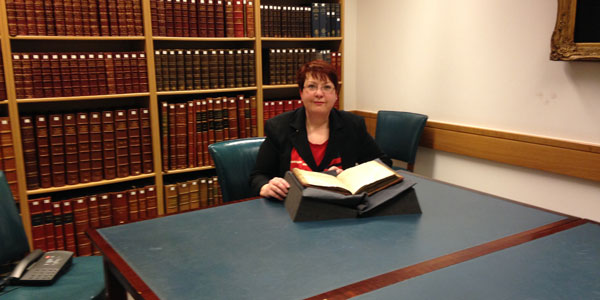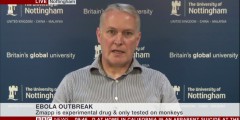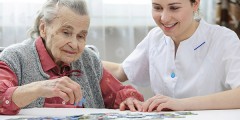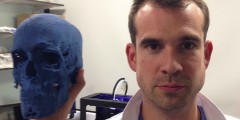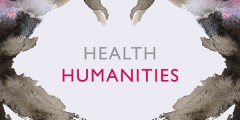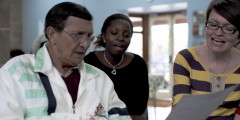#MeantToBe – advice from our AncientBiotics academic on A level results day
August 13, 2015
With her AncientBiotics team’s remarkable research paper ‘A 1,000-Year-Old Antimicrobial Remedy with Antistaphylococcal Activity’ just published, Dr Christina Lee from our School of English has some advice for prospective students on A level day… “Today is the day that can mean big choices for those receiving their exam results – a fork in the road …
On the buses with youngsters at Nottingham brain tumour centre
April 20, 2015
Rocky, the open top bus, took a break from touring the seaside to put in an appearance on campus recently to mark a new donation to an appeal to raise £1.8 million for a vital new piece of medical and research equipment. Children from the University’s Children’s Brain Tumour Research Centre (CBTRC), their families and healthcare …
Experience life as a science journalist – deadline tomorrow!
April 2, 2015
There are just a few hours left to apply for a funded place on the British Science Association’s Media Fellowship Scheme. Deadline tomorrow. If you have a real enthusiasm for science communication – and can give examples to support this – then read on. Additional info you might find useful: This scheme is for practising scientists. …
In cancer comparisons, let’s save life years in the quest to save lives
March 30, 2015
Professor David Walker, Professor of Paediatric Oncology at the Children’s Brain Tumour Research Centre and President of the British Neuro-Oncology Society, on why saving lives in the fight against cancer should not be the only focus, especially for children and young people affected by rare forms of the disease. The UK’s poor performance in cancer survival statistics requires …
The ethics of Dr Who’s diet
March 26, 2015
Dr Kate Stewart from The University of Nottingham and her co-author Dr Matthew Cole at the Open University offer some food for thought on the 10th anniversary of 21st century Dr Who On 26th March 2005, the BBC began broadcasting the first series of Doctor Who since the original show was cancelled in 1989. The show …
A big week for dementia
February 24, 2015
Tom Dening, Professor of Dementia Research at the Institute of Mental Health at The University of Nottingham, takes a look at this week’s major news announcements related to tackling dementia and funding new research into the degenerative condition. Although dementia is rarely out of the news and indeed often on the front pages of certain national papers, …
New ‘manifesto’ for the health humanities
February 5, 2015
A new book by mental health experts at the University provides the world’s first manifesto for the new field of health humanities. Health Humanities, co-authored by Professor Paul Crawford — who was appointed the world’s first Professor in Health Humanities in 2011 — and colleagues in the Institute of Mental Health, draws upon the multiple …
New dementia arts hub for Nottingham
February 4, 2015
A new research hub looking at how painting, puppetry, singing and other arts can improve dementia care is being launched at the University. The Arts and Dementia (TAnDEM) doctoral training centre, funded by a grant from The Alzheimer’s Society, will be split 50-50 between Nottingham and its partner The University of Worcester. It will support …
Coeliac disease rates among young children has almost tripled in the last 20 years
January 29, 2015
The number of young children being diagnosed with coeliac disease in the UK has almost tripled in the last 20 years, according to research led by experts at The University of Nottingham. The study, published in the Archives of Disease in Childhood and jointly funded by the charities Coeliac UK and CORE, also found that …

